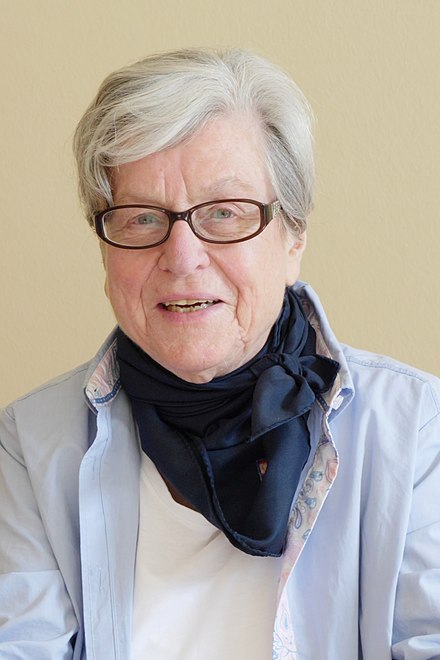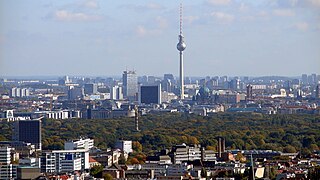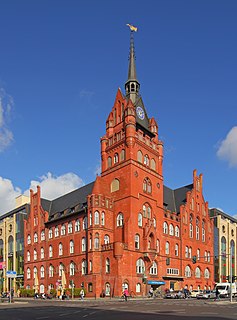
Herta Däubler-Gmelin is a German lawyer, academic and politician of the Social Democratic Party. She served as Federal Minister of Justice from 1998 to 2002, and as a Member of the Bundestag from 1972 to 2009. She currently teaches as an honorary professor of political science at the Free University of Berlin, particularly on international relations and human rights, and was the Hemmerle Professor at RWTH Aachen University in 2011. She is married to the legal scholar Wolfgang Däubler.
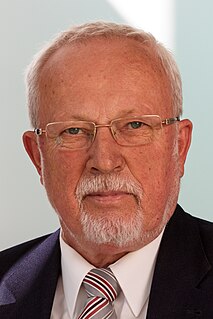
Lothar de Maizière is a German Christian Democratic politician. In 1990, he served as the only democratically elected prime minister of the German Democratic Republic, and as such was the last leader of an independent East Germany.

Friedrich Merz is a German lawyer and politician of the centre-right Christian Democratic Union of Germany (CDU). He served as a Member of the European Parliament 1989–1994, a member of the Bundestag 1994–2009, and as the chairman of CDU/CSU parliamentary group 2000–2002. In 2018 he announced his candidacy in the CDU leadership election in December 2018.

Claudia Nolte was born Claudia Wiesemüller on February 7, 1966 in Rostock, a town that then lay in East Germany. Nolte became a German politician of the Christian Democratic Union party (CDU), becoming the youngest cabinet minister in German history whilst in office from 1994–98. She was Federal Minister for family, seniors, women and youth affairs and, by virtue of this office, presided over the European Union Council of Ministers. Claudia is a Catholic and is active in the Catholic community. She is married to investigative journalist David Crawford of CORRECT!V. With her marriage in July 2008, she changed her name to Claudia Crawford.
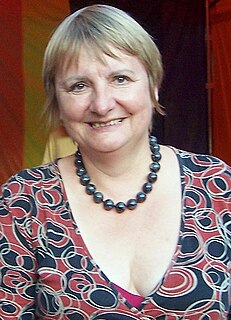
Vera Lengsfeld is a German politician. She was a prominent civil rights activist in East Germany and after the German reunification she first represented the Alliance '90/The Greens and then the German Christian Democratic Union (CDU) in the Bundestag.

Hanna-Renate Laurien was a German politician of the Christian Democratic Union (CDU).
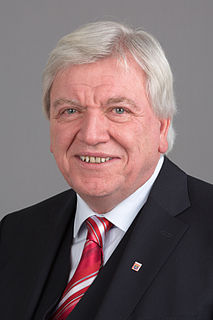
Volker Bouffier is a German politician of the Christian Democratic Union (CDU). Since 31 August 2010 he has been Minister President of the German state of Hesse. From 1 November 2014 until 31 October 2015 he was President of the Bundesrat and ex officio deputy to the President of Germany. He has been chairman of CDU in Hesse since July 2010. From 1999 to 2010, he was minister of interior and sports in the state of Hesse. Bouffier is a lawyer by profession.
Johannes Pinsk was a German Catholic theologian and professor.

Johann Baptist Gradl, was a German politician and member of the Christian Democratic Union.

Michael Linden is a German psychiatrist and professor of psychiatry, psychosomatic medicine and psychotherapy in the Charité University Hospital in Berlin.

Nicola Beer is a German politician of the Free Democratic Party (FDP).

Lorenz Hubert Weinrich is a German historian.

Canan Bayram is a German lawyer and politician of Kurdish-Turkish origin. She is a member of the 19th German Parliament (Bundestag). She was a member of the House of Representatives of Berlin from 2006 to 2017, when she was directly elected to the Berlin Friedrichshain-Kreuzberg – Prenzlauer Berg East electoral district in the 2017 federal election. She is currently the only Alliance 90/Green member of parliament to hold a direct mandate rather than being elected from the party list.
Else Ackermann is a German physician and pharmacologist who became an East German politician. The report on the power relationships between the citizen and the state which she drafted, and in 1988 presented, known as the "Neuenhagen Letter", was a significant precursor to the changes of 1989 which led to the ending, in the early summer of 1990, of the one-party dictatorship, followed by German reunification later that same year.
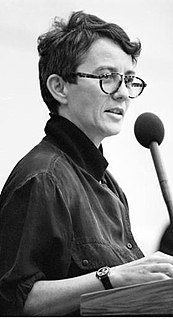
Ann Klein was a German lawyer and, at the time of German reunification, a Berlin Senator. Her politics were green. Her focus as a senator was on women's rights. She was also the first Berlin senator to "go public" over her lesbian life choices.
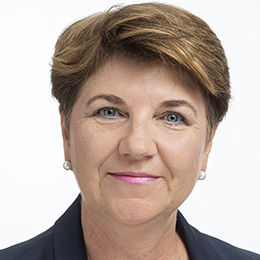
Viola Amherd is a Swiss politician. She was elected to the Federal Council of Switzerland on 5 December 2018, the eighth woman chosen for this office. Amherd is affiliated to the Christian Democratic People's Party of Switzerland (CVP).
